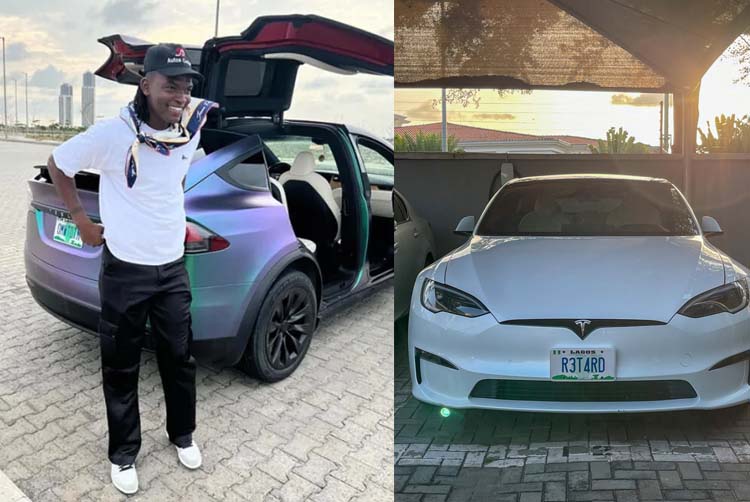The future is finally here, and we have moved past the time when people could only see electric cars in American movies. Now, they are among us, and Nigerians own some of the most expensive cars in the world.
Table of Contents
On November 12, 2022, Paystack co-founder Ezra’s dream came true when he bought a Tesla Model S. In an interview, he talked about how he had dreamt of owning this car and how it took him 12 years of hard work and dedication to achieve it.
Many people wonder how Tesla owners in Nigeria will charge their cars. A charging station is a machine that supplies electric energy to charge plug-in electric vehicles, including hybrids, neighbourhood electric vehicles, trucks, buses, and others. There are several electric car charging stations in Nigeria, including ones in Sokoto, Lagos by NADDC and Possible EV is a pioneering African automotive startup that aims to serve as a convenient, fast-charging point for electric buses, taxis, and private vehicles, helping to drive sustainable mobility and promote the widespread adoption of EVs in the country.
Tesla is the most popular electric vehicle in Nigeria, and we will now share the top four owners of Tesla vehicles in Nigeria.
Tesla cars have a great resale value because they get updated regularly, and the fibre optic network, SpaceX’s Starlink, has made it easier for the Tesla app to work in remote areas. A new Tesla base market sale price ranges between $42,990 and $119,990 before tax incentives or local rebates. The Nigerian Customs Service charges 70% of the value of a new car as a tariff, while 35% of the value of a used car is charged.
For example, in 2021, the cost of purchasing and air freighting a 2020 vehicle into Nigeria was between N130 to N135 million, while clearing the car from the port cost about N76 million.
List of Tesla car owners in Nigeria
- Kola Ladipo
- Alkesh Thavarni
- Fejiro Hanu
- Ezra Olubi

Here are some Tesla models and their battery capacities:
- Model S: 100-kWh battery
- Model X: 75-kWh battery
- Model Y: 75-kWh battery
Charging costs are based on battery specifications and the tariff band. For example, in 2022, a user on a tariff band of N60 per KWh could spend up to N6000 for 100-kWh, using on-grid power for Tesla charging with a prepaid meter.










